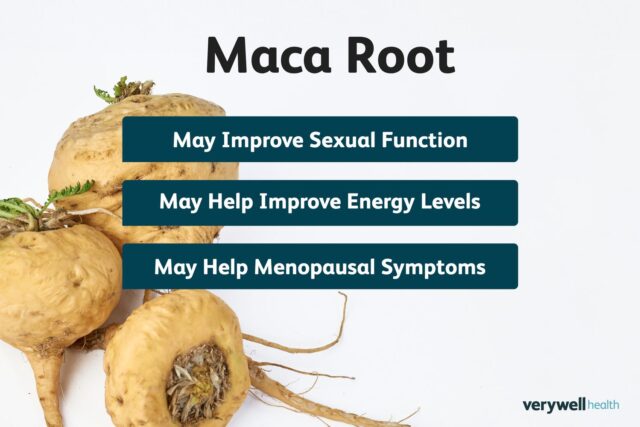Maca, a root vegetable native to the high Andes of Peru, has been cultivated for thousands of years. Its scientific name, Lepidium meyenii, reflects its botanical lineage, but its role as a dietary supplement has only gained widespread recognition in recent decades. This remarkable root is no ordinary dietary supplement, and several key factors contribute to its unique status.
Ancient Origins and Cultural Significance
Maca’s cultivation can be traced back over 2,000 years, where it was revered by the indigenous populations of the Andean region. The root was traditionally used for its supposed energizing and fertility-enhancing properties. It was often consumed by Inca warriors before battles to increase stamina and strength. Its cultural significance is still evident today, with maca being a staple in traditional Peruvian cuisine and medicine.
Rich Nutritional Profile
The nutritional content of maca is one of the primary reasons for its exceptional status. It is packed with essential vitamins and minerals, including vitamin C, copper, iron, and potassium. Additionally, it contains a variety of amino acids, fatty acids, and antioxidants. This rich nutritional profile supports overall health and well-being, providing a natural source of essential nutrients that are often lacking in modern diets.
Adaptogenic Properties
Maca is classified as an adaptogen, a substance that helps the body adapt to stress and maintain homeostasis. Adaptogens are believed to support the adrenal glands, which are responsible for managing the body’s response to stress. By modulating the release of stress hormones like cortisol, maca can potentially enhance the body’s resilience to physical and emotional stress. This adaptogenic property sets maca apart from many other dietary supplements, which may not offer such comprehensive support for stress management.
Hormonal Balance and Reproductive Health
One of the most well-documented benefits of maca is its ability to support hormonal balance. Studies have indicated that maca can help regulate the endocrine system, leading to improved hormonal function. This is particularly beneficial for women experiencing symptoms of menopause, such as hot flashes, mood swings, and disrupted sleep. Maca’s impact on reproductive health is also noteworthy; it has been shown to improve fertility in both men and women. In men, it may increase sperm count and motility, while in women, it can enhance ovulatory function.
Energy and Stamina Boost
The energizing effects of maca have been recognized since ancient times. Modern research supports these claims, suggesting that maca can improve physical performance and reduce fatigue. Athletes often use maca as a natural alternative to synthetic energy supplements. Its ability to boost stamina without causing jitters or crashes makes it an attractive option for those seeking a natural way to enhance their physical endurance and vitality.
Cognitive Function and Mood Enhancement
Cognitive benefits have also been associated with maca consumption. It is believed to improve memory, focus, and overall mental clarity. Additionally, maca has been linked to mood enhancement and the alleviation of symptoms of anxiety and depression. These effects are likely due to its adaptogenic properties, which help the body manage stress and promote a balanced mood.
Antioxidant and Anti-inflammatory Effects
Maca contains a high level of antioxidants, which are compounds that help protect the body from oxidative stress and free radical damage. Antioxidants play a crucial role in preventing chronic diseases and supporting overall health. Furthermore, maca has anti-inflammatory properties that can help reduce inflammation in the body, which is often a precursor to various health issues.
Versatility in Consumption
Maca’s versatility as a dietary supplement is another reason for its popularity. It can be consumed in various forms, including powder, capsules, and liquid extracts. The powder form is particularly popular and can be easily added to smoothies, baked goods, and other recipes. This flexibility allows individuals to incorporate maca into their diets in a way that suits their preferences and lifestyles.
Scientific Research and Validation
The growing body of scientific research supporting the benefits of maca further solidifies its status as no ordinary dietary supplement. Numerous studies have documented its effects on hormonal balance, energy levels, cognitive function, and overall health. While more research is needed to fully understand its mechanisms of action, the existing evidence is compelling and supports its use as a functional food.
Sustainable Cultivation and Ethical Considerations
Maca is often grown in its native regions using traditional farming methods that support sustainable agriculture. Ethical considerations also play a role in its cultivation and distribution. Efforts to ensure fair trade practices and protect the rights of indigenous farmers are essential to maintaining the integrity and sustainability of the maca supply chain. Consumers who choose maca can feel confident that they are supporting ethical and sustainable practices.
Conclusion
In conclusion, maca’s rich history, extensive nutritional profile, adaptogenic properties, and scientifically validated health benefits make it a standout among dietary supplements. Its ability to support hormonal balance, enhance energy and stamina, improve cognitive function, and provide antioxidant and anti-inflammatory effects contribute to its unique status. Furthermore, its versatility in consumption and the ethical considerations surrounding its cultivation add to its appeal. Maca is more than just a supplement; it is a powerhouse of nutrients and health benefits that has stood the test of time.










